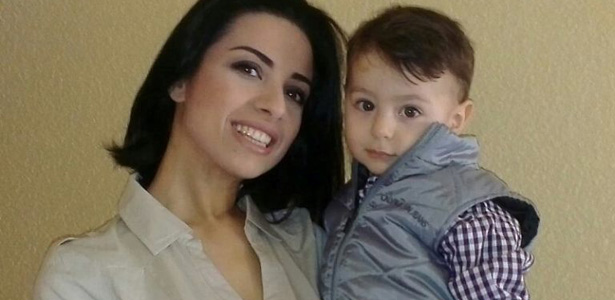Maral Zakarian: “I prefer to live here…”

It’s always hard to start from scratch, but as my interlocutor Maral Zakarian says, if you have the will and desire, you can overcome the difficulties.
Maral Zakarian: I studied at Aleppo State University, after which I got accepted to Hamazkayin’s Armenian Studies Institute and graduated with honors.
I taught at the Krtasirats School of Aleppo for a year and wrote articles for Gandzasar Weekly at the same time, but it was short-lived. First, I had a child, and we moved to Armenia. I’m unemployed, but I’m a first-year student in the Faculty of Journalism at Yerevan State University. Taking into consideration the fact that I might have difficulties with finding a job as a Western Armenian language expert here, I preferred journalism. Besides that, when I was working for Gandzasar Weekly, I felt that I had a love for writing, and that was a reminder that I could become a journalist.
“Hayern Aysor”: Did you move to Armenia with your family?
Maral Zakarian: Yes, I’m here with my parents and two children, while my husband is in Qatar. He’s always been working there.
“Hayern Aysor”: Is it likely for you to move to Qatar?
M. Z.: No, we’ve already settled in Armenia and have a house here. My husband doesn’t have any plans to visit anytime soon due to financial difficulties. It will be hard for him to find a job here.
I have a 7-year old child who goes to school, and my younger child is one-and-a-half years old.
We had planned on moving to Armenia before the war, but we didn’t think it would happen so soon and so quickly. When you have a plan, you adapt more easily. I prefer living here more than in any other country. It’s better for my children as well. My younger son is too little to feel the difference, but my elder son adapted very quickly. When we came here, we took him to the local kindergarten. He adapted very easily and started speaking in Eastern Armenian very quickly. We speak Western Armenian at home. As soon as he would come home from the kindergarten, he would start speaking in Eastern Armenian. He can differentiate between the two. I’m certain that anyone can overcome difficulties, if he or she has the will and desire. If we create difficulties and say we can’t overcome them, those difficulties will definitely emerge.
“Hayern Aysor”: Do you have any difficulties with studies?
M. Z.: The system is different. In Aleppo it’s a little stricter and more binding, meaning students have to study. Here students are free. They don’t have to study. It’s their choice. In Aleppo a student can’t be transferred to the next level without receiving the evaluations. The exams are difficult since everything is in writing. Nobody can ask anything or interfere. Here studying and graduating is easier.
The only difference between me and my classmates is the age difference. They are as old as my students were in Aleppo. It’s obvious that they look at things differently. I know what life is about. I know why I’m here and why I chose this profession.
“Hayern Aysor”: It’s interesting to know how you picture integration.
M. Z.: I agree with the fact that Armenians need to preserve the Western Armenian language. Western Armenia can’t be a barrier to Eastern Armenian. So, why shouldn’t we preserve it? Why should Syrian-Armenians start speaking in Eastern Armenian with their relatives? Why? They can speak Western Armenian with their relatives and Eastern Armenian with the Eastern Armenians. They can be fluent in both and master both languages.
For instance, I write in classic orthography during the written exams and there is no problem with that.
Cultural integration is easier than linguistic integration. Language is the main barrier. Things are easier in terms of culture because we can bring the two cultures together and enrich them.
Interview by Lusine Abrahamyan




 Արևելահայերեն
Արևելահայերեն Արևմտահայերեն
Արևմտահայերեն Русский
Русский






